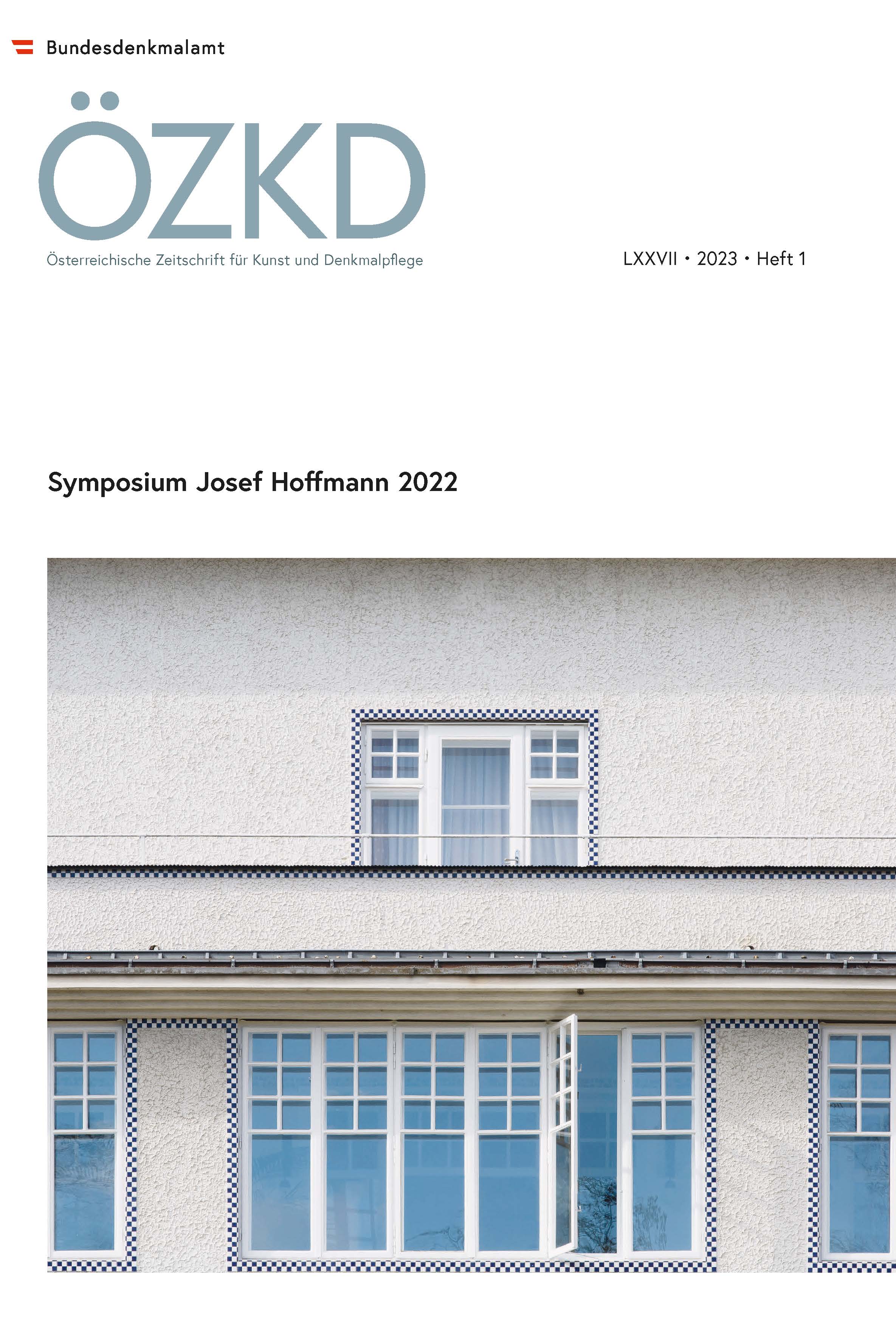
ÖZKD LXXVII Heft 1 Symposium Josef Hoffmann, pp. 11-20, 2024/04/15
Symposium Josef Hoffmann 2022

Just like images and written sources or any other kinds of media, historical buildings document the past. They can therefore contribute valuable information about various topics as part of the discourse. This text explores Josef Hoffmann’s buildings in connection with the date of their designation as protected monuments and the justification for granting them this status. As well as providing insights into the control of the narrative (i.e. who decides what counts as a historical monument? Is there a social consensus?), this also tells us about the respective context and stage of art and architectural history at various points in time. Josef Hoffmann’s work is particularly well suited to an investigation of this kind; born in 1870, Hoffmann achieved cult status among designers with his major works in the 1900s, which means that the history of his reception can be traced back several decades by way of publications, exhibitions and memberships, as well as through restorations and designations of protected status.